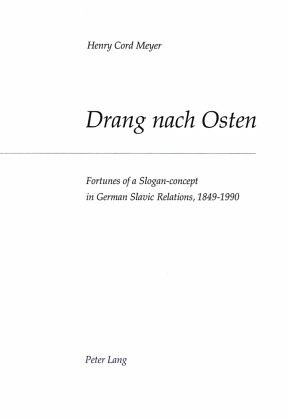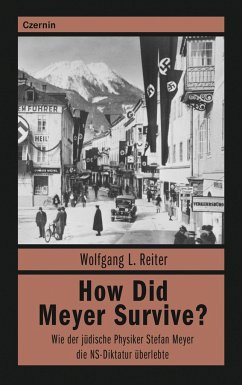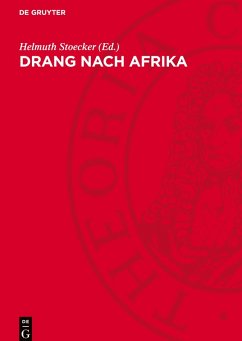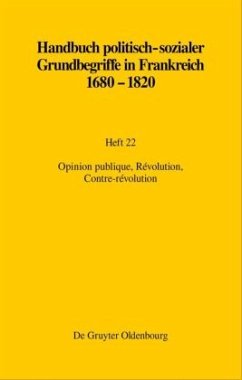
Drang nach Osten
Fortunes of a Slogan-concept in German-Slavic Relations, 1849-1990
Versandkostenfrei!
Versandfertig in 6-10 Tagen
66,15 €
inkl. MwSt.

PAYBACK Punkte
0 °P sammeln!
Drang nach Osten is a phrase well-known in the Slavic, French and Anglo-Saxon world. But the Germans, who are supposed to have originated the term to express their drive to subjugate the Slavs, do not use it. Indeed, they vigorously denounce the concept as a hostile fabrication of their enemies. How, and where, did this household expression originate? By what means, and to what areas, did it spread? Using library resources in America, London, Paris, Marburg, Helsinki and Vienna, Henry Cord Meyer traces the development of the slogan from a corner of ethnic conflict in old imperial Russia to its...
Drang nach Osten is a phrase well-known in the Slavic, French and Anglo-Saxon world. But the Germans, who are supposed to have originated the term to express their drive to subjugate the Slavs, do not use it. Indeed, they vigorously denounce the concept as a hostile fabrication of their enemies. How, and where, did this household expression originate? By what means, and to what areas, did it spread? Using library resources in America, London, Paris, Marburg, Helsinki and Vienna, Henry Cord Meyer traces the development of the slogan from a corner of ethnic conflict in old imperial Russia to its world-wide use today. Finally, he addresses the strange German reluctance to come to grips psychologically with these intellectual circumstances. More than just an aspect of German-Slav interaction, this book is also a rare and painstaking inquiry into the socio-political process by which a local catchword is transformed into a broadly-held historical concept.












